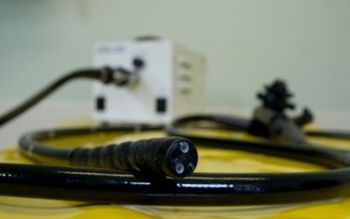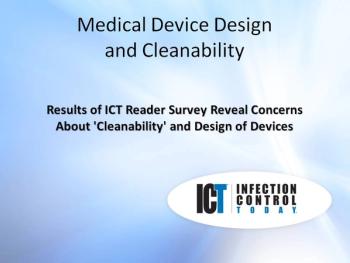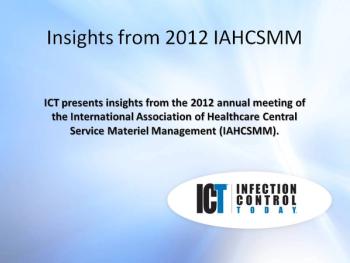
Sterile Processing
Latest News











The recent attention to dirty instruments is interesting, as this is not a new issue. For years, sterile processing professionals have been dealing with issues surrounding reprocessing of reusable medical devices and surgical instrumentation. One of the major reasons certification programs were developed for sterile processing personnel was to be able to verify competencies for personnel performing the critical functions of cleaning, high-level disinfection and sterilization.

People across the United States now know that hair dressers need some form of certification to do their jobs but if you are cleaning surgical instruments for surgery, unless you live in New Jersey, you are not required by law to have some basic knowledge to do the task at hand -- cleaning and sterilizing medical devices in a medical facility.

In recent years, there has been an increased discussion in the healthcare arena concerning the proper, consistent cleaning and reprocessing of endoscopes. Healthcare facilities failure to protect patients from the risk of exposure to disease has made headlines. Reacting to those headlines, accreditation agencies and health departments are increasing their surveillance of practices of scope reprocessing.





Following a two-day summit convened by the FDA and AAMI in October 2011, AAMI released a post-event publication in December 2011 that captured the essence of the summit, outlined the priorities, and established a path forward.

I have been around long enough to see many changes in the way items are processed for reuse in healthcare. Years ago, cleaning, packaging and sterilization took place in many different locations throughout a healthcare facility. Most of the time, these functions took place in the user departments, and the thought of centralizing these functions was not always met with enthusiasm. It was difficult for the end-user to envision someone else processing items that were essential to their delivery of quality patient care.

It is illegal in some parts of the country to dump used OPA or glutaraldehyde down the drain without neutralizing it first. It is a popular misconception that used OPA or glutaraldehyde is no longer dangerous (biocidal) after it has passed its reuse date or it has failed a MRC test. Not only can used disinfectants adversely affect the sewer system, but they can be dangerous to the healthcare worker as well.




